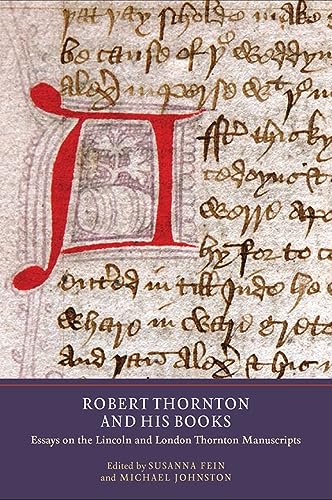

Most ebook files are in PDF format, so you can easily read them using various software such as Foxit Reader or directly on the Google Chrome browser.
Some ebook files are released by publishers in other formats such as .awz, .mobi, .epub, .fb2, etc. You may need to install specific software to read these formats on mobile/PC, such as Calibre.
Please read the tutorial at this link: https://ebookbell.com/faq
We offer FREE conversion to the popular formats you request; however, this may take some time. Therefore, right after payment, please email us, and we will try to provide the service as quickly as possible.
For some exceptional file formats or broken links (if any), please refrain from opening any disputes. Instead, email us first, and we will try to assist within a maximum of 6 hours.
EbookBell Team

4.1
60 reviewsThe Yorkshire landowner Robert Thornton (c.1397- c.1465) copied the contents of two important manuscripts, Lincoln Cathedral, MS 91 (the "Lincoln manuscript"), and London, British Library, MS Additional 31042 (the "London manuscript") in the middle decades of the fifteenth century. Viewed in combination, his books comprise a rare repository of varied English and Latin literary, religious and medical texts that survived the dissolution of the monasteries, when so many other medieval books were destroyed. Residing in the texts he copied and used are many indicators of what this gentleman scribe of the North Riding read, how he practised his religion, and what worldly values he held for himself and his family.
Because of the extraordinary nature of his collected texts - Middle English romances, alliterative verse (the alliterative Morte Arthure only exists here), lyrics and treatises of religion ormedicine - editors and scholars have long been deeply interested in uncovering Thornton's habits as a private, amateur scribe. The essays collected here provide, for the first time, a sustained, focussed light on Thornton and hisbooks. They examine such matters as what Thornton as a scribe made, how he did it, and why he did it, placing him in a wider context and looking at the contents of the manuscripts.
Susanna Fein is Professor of Englishat Kent State University; Michael Johnston is an Assistant Professor of English at Purdue University.
Contributors: Julie Nelson Couch, Susanna Fein, Rosalind Field, Joel Fredell, Ralph Hanna, Michael Johnston, George R. Keiser, Julie Orlemanski, Mary Michele Poellinger, Dav Smith, Thorlac Turville-Petre.